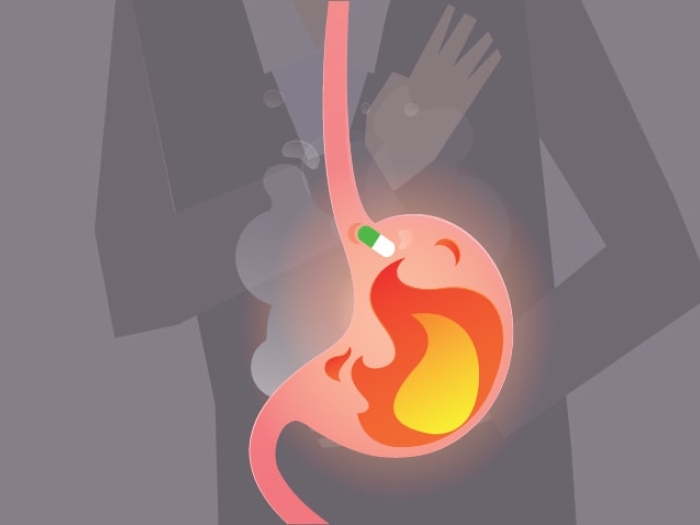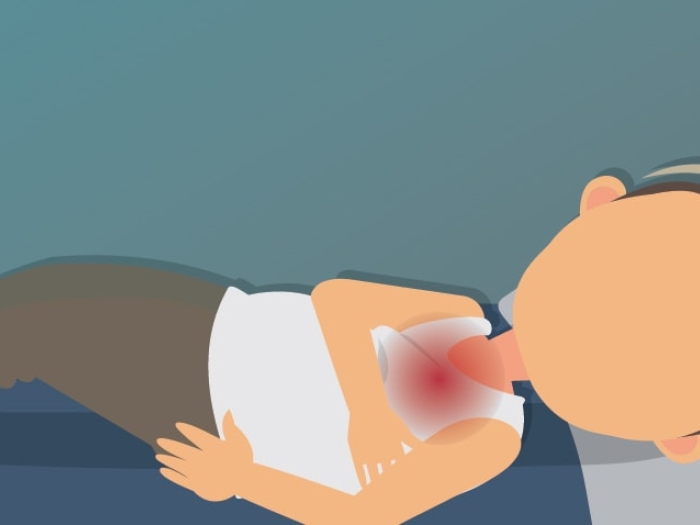For the young and healthy, two common health conditions cause most chronic digestive discomfort. Lifestyle changes can make a difference.
8:00 AM
Author |

The digestive system is a real workhorse.
If we're lucky, we don't give have to give it a second thought: food and drink go in, the digestive system does its work and waste comes out.
But not everyone has a trouble-free tummy, and even those who do should treat their gut well now to minimize the risk of problems down the road. Read on for an overview of the most common causes of digestive issues — plus healthy living strategies for a happy gut.
Gastrointestinal challenges
One of the more common digestive troubles faced by people of all ages is acid reflux.
This can range from a holiday overeating-induced case of heartburn to a more chronic problem like gastrointestinal reflux disease (GERD). For most people, GERD can be managed by lifestyle changes and over-the-counter medications. For others, further interventions may be needed.
Irritable bowel syndrome most often begins in the teen years or early adulthood and is twice as common in woman than men. People with IBS experience a variety of symptoms, including nausea, cramping, constipation and diarrhea. There are many treatment options available to those with IBS, including lifestyle changes and medications; a consultation with a gastroenterologist can help.
Promoting healthy digestion
If you're young, making good choices now can help protect your digestive system as you age (when people are typically more prone to digestive problems). These three general behaviors can make a difference.
-
Eat well. Your digestive system appreciates a diet full of fruits, vegetables, whole grains and lean proteins, such as chicken and fish. Avoid high-fat and processed foods, which can aggravate GERD or IBS symptoms.
Practice mindful eating, or eating to nourish your body and recognizing the feelings of being full or hungry. Include probiotics in your diet to help maintain a good balance of microorganisms in your gut. Also know that what may work well for one person may not work well for another. Recognize what foods make you feel good or bad, and adjust your diet to keep your digestive system happy. -
Be active. Aim for at least 30 minutes of moderate physical activity four days a week.
Being active keeps your digestive system pumping along doing its work. Staying active also helps you maintain a good body weight, whereas being overweight contributes to many problems, ranging from GERD to colon cancer. -
Live healthy. Making good lifestyle choices helps you maintain good digestive health. If you smoke, quit. Limit your intake of alcohol and caffeine. Stay hydrated by drinking plenty of water.
There is a strong connection between your digestive system and anxiety and stress, so working to manage those is important. For many people, exercise is a good stress reducer. Yoga, mediation and deep breathing are also helpful.
Taking the time to make good choices and live well now is an investment in your healthy future — one you are certain to appreciate as you age and continue enjoying life to its fullest.

Explore a variety of health care news & stories by visiting the Health Lab home page for more articles.

Department of Communication at Michigan Medicine
Want top health & research news weekly? Sign up for Health Lab’s newsletters today!





